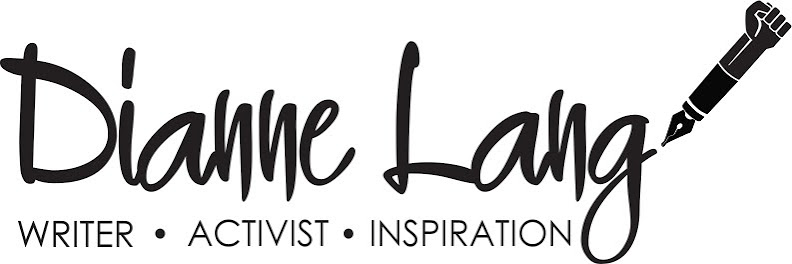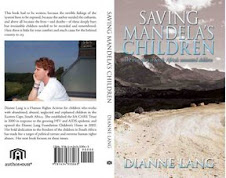Don't take things Personally
This past week has again confirmed the importance of not taking things personally. For one reason or another, and often because of our socialisation process as children or as adults in abusive situations, we tend to take things too personally and therefore have a constant need to defend ourselves. We also have a need to attack without thought when our buttons are pushed for one reason or another.
It took me many years to learn not to take anything personally. I was constantly being described by others as being volatile, angry and defensive, but I could not see that in myself. And when I was described as such, it would make me more volatile, more defensive and angrier.
I was brought up in a home that was anything but peaceful. I watched my father abuse my mother emotionally and physically. When I was 12 years old, I stood up for my mother for the first time. I don’t know where I got the courage or strength, but as my father lifted his hand to my mother, I grabbed a large glass Coca-Cola bottle and jumped between them. “Mommy, if he hits you, hit him with this”, I yelled, shoving the bottle into her hand. And so began my dance with anger, defensiveness and taking things personally. The world became a very hostile place to live in and no one, not even my teachers, believed the life I was living. Those were the days when abuse was something that everyone turned away from and pretended nothing was happening. I learned to fight from the age of 12. I learned to fight for my mother and for my siblings. I learned how to provoke my father into beating me because I knew that if he beat me then my mother and the rest of the family would be safe for the next 24 hours. I learned to be angry; I learned to be defensive of anything around me that could start an argument or a fight. I learned how to defend everyone around me, and I learned to take the beating for someone else because I thought that I could handle it better than the next person.
In hindsight, this upbringing and the socialisation process I underwent for the next 30 years turned me into this angry person who took everything personally and I was never peaceful. I used to think that the only time I experienced peace was when I had nothing to do with another person. Often, I would withdraw from people for weeks on end so that I did not have to deal with what I perceived as a personal attack on my very being.
And because I took everything so personally, I would defend my reasons for my behaviour to the hilt, even when it was not necessary. It also turned me into a human rights activist who was continually in trouble. Another very well-known activist told me that if I was not deep in the shit over my activism, then I was not doing a very good job. So for a long time, I relished the trouble I was always in, I relished the fight because I then knew I was actually achieving something. If people were mad at me, then I was doing a good job.
But the big lesson came when I finally realized that people (and the government) were not fighting me as a person, but for what I stood for. I became the target for those who could not face their own consciences. With this realization, I could continue with my human rights activities without feeling personally threatened.
It was years and years of working on who I am to get to this point where I take nothing personally. Even if someone attacks my character, I still have no emotion attached and shrug it off as “Can’t expect anything from pig but a grunt”.
This past week, I have had two situations where I have seen what damage is done to the person who takes offence to something. I was asked a question on my Facebook inbox and it only required a one sentence answer. I was busy doing a number of things and answered that one question with, “SATURDAY MORNING 11 IS FINE”… and then I was asked why I was using capital letters and if I was angry with him. My answer, “… because the capitals were on and I was in a hurry. Please do not take things personally when I write to you in small letters either. It has no meaning”.
We can never give offence; it is always taken by someone else. Very few attacks on others are ever personal and most people are just giving an opinion as they see it. Unfortunately, we are in dire need of intelligent and well-thought out opinions, but alas, we do not live in a perfect world. You can’t give offence, others take offence. And I refuse to take offence, because I am the only one who will be upset by it and I prefer now to live in harmony with my surroundings. Of course, that does not mean that I have to shut my mouth when someone says something stupid, but it does mean that I no longer get emotional about the stupidity of others. The next situation was when someone took what I had said on FB personally and came out fighting. The comment was not meant for her, her buttons were pushed because of her own history and she did not even read the comment properly. Then another person took that as a personal attack on me (her cousin) and started fighting as well. No amount of water could dampen these two ladies from becoming very personal and attacking one another. All I could do was laugh because that is exactly how I used to behave before I became more mature in my outlook about taking things personally.
Since I have learned this lesson of not taking anything personally, my life is a lot more peaceful and calm. Even when others are slating me or fighting me for my beliefs or for the causes I support, I remain calm and am able in most cases, to win the aggressor over to my way of thinking. I wish I could have learned this when I was younger. I would have been less angry and I would have cried fewer tears.
Of course, I still have buttons that others can push … if I am threated with a legitimate threat, or if someone I care about is threatened, the aggressor has stood on the lion’s tail. Let us just say that I make a good friend because I think with my heart, but a formidable opponent because then…I think with my head.
















